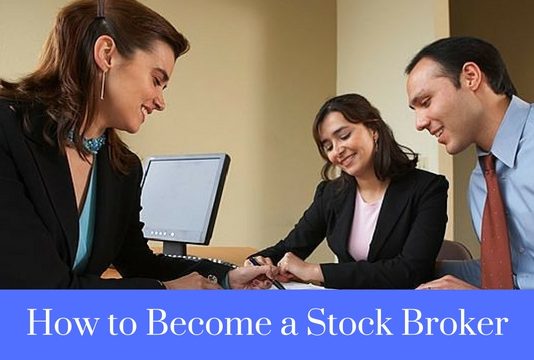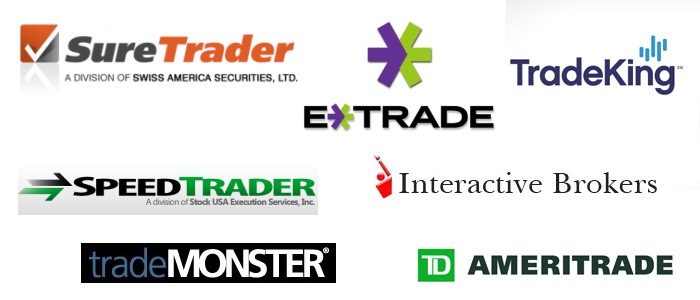Picking a stock broker
Let's face it, you can't start investing if you don't have a brokerage account. As a young investor, selecting your ideal broker is often very different than it would be for older investors of the same experience level. Choosing a broker isn't all that different from choosing a stock — it requires a lot of careful contemplation, and not all brokers are right for all investors.
Before you make the decision of whether to go with a human broker or broker-reseller see below , it's also worth investigating whether your first broker should be a robo-advisor. This field is moving fast ; How the Fidelity Go Robo-Advisor Will Compare will get you started.
Before you can choose a broker, you have to know who or what constitutes one. There are two types of brokers out there: Regular brokers typically are considered more reputable than broker-resellers. That's not to say that all resellers are inherently bad, just that you need to check them out before you sign up with them. Regular brokers — for example, Scottrade, Capital One Investing and Fidelity — are members of recognized organizations such as the Financial Industry Regulatory Authority FINRA and the Securities Investor Protection Corporation.
Breaking it down further, there are distinctions between full-service brokers and discount brokers.
The New Investor's Complete Guide to Brokers
As the name suggests, full-service brokers offer many more services to investors than discount brokers do, but these services don't come cheap. With a full-service broker, much of the legwork is done by the broker, who provides the investor with more one-on-one advice as well as individualized suggestions and research.
That's not to say that discount brokers leave much to be desired in the customer service department. In fact, many discount brokers provide the option to solicit a broker for advice on a trade with your existing brokerage account. The caveat to remember is that when you do execute that trade, you'll pay considerably more usually in execution fees after consulting an actual broker than you would with a regular online trade.
For younger investors , discount brokers are probably the best bet. Some people recommend full-service brokers for new investors , but it's probably not financially feasible for a young person to go with a more expensive full-service broker.
Besides, today's online discount brokers are widely used and typically provide a vast array of tools for inexperienced investors who aren't sure about their next steps. Plus, assuming you begin slowly, you'll learn a whole lot more about investing if you do some of the work yourself. Looking for the your first online broker? Check out our new Brokerage Review Center! Trade execution fees are important, but there are other brokerage fees to consider, as well.
If you're under 30, chances are you're limited by your budget. When it comes to investing at this age, looking at the fees that might apply to you is essential to ensuring that you make the most of your investment dollar. Here are some additional costs to consider:. Most brokers have minimum balances for starting a brokerage account.
Margin While new investors might not want to open a margin account right away, it's something to think about for the future. Margin accounts usually have higher minimum balance requirements than standard brokerage accounts. It's also important to take a look at the interest that your broker charges when you make a trade on margin.
How to Choose the Best Online Broker - NerdWallet
Withdrawal It's your money, but sometimes it's hard to get it out of your account. That's because brokers sometimes charge fees to make a withdrawal, or they won't let you take any money out if it will drop your balance below the minimum.
Some accounts allow you to write checks from them, but those typically require a much higher minimum balance. Make sure that you understand the rules involved in removing money from an account with your prospective broker. While most brokers have similar fee schedules, some brokers have complex fee structures that make it harder to sort out hidden fees. This is particularly common among broker-resellers who may use fee structure as a selling point to entice clients. If you're looking at a broker that has an unusual fee structure, it's all the more important to make sure that the broker is legitimate, that it will look out for your best interests and that its fee structure will complement your investing style.
If the rates seem too good to be true, be sure to read carefully over your account agreement and fee summaries, where additional fees are likely to be hidden.

Your choice of broker should be influenced by the type of investor you are. No single broker is good for all investors, so determining your investment style before you start investing is usually a wise decision.
The Trader Traders don't hold onto stocks for a long time. They're interested in quick and dirty gains based on short-term price volatility , and they make numerous trade executions over a short time span.
If you envision yourself as a trader, you'll want to look for a broker with very low execution fees, as high trading fees could quickly eat up your returns. Also, don't forget that active trading takes experience, and the combination of a new inexperienced investor and frequent trading often results in negative returns.
The Buy-and-Hold Investor A buy-and-hold investor , or passive investor, is someone who holds stocks for the long term. They're interested in letting the value of their positions appreciate over longer periods of time and reaping the benefits at a later date. If you fancy yourself a buy-and-hold investor, your main concern will be avoiding brokers with monthly fees.
Picking a Broker -- The Motley Fool
For a long-term investor, a slightly higher trade commission should be less of a concern. Many investors will find that their investment style falls somewhere between an active trader and a buy-and-hold investor, in which case other factors will become important in picking the most appropriate broker.
Picking Your First Broker | Investopedia
For instance, if you're a very young investor a minor you won't be able to open your own brokerage account. However, some brokers make it easy to set up custodial accounts and provide fee structures that are more appropriate for teenagers, making it possible for people to start investing at a younger age.
Eventually, there comes a time when you've got to make that decision and choose a broker. It's absolutely necessary to balance your needs as an investor and as a client — good customer service is essential, too. While your first broker won't necessarily be your broker for life, you have a much better chance of making money as an investor if you put the right amount of time and research into choosing a broker.
Dictionary Term Of The Day. A measure of what it costs an investment company to operate a mutual fund. Latest Videos PeerStreet Offers New Way to Bet on Housing New to Buying Bitcoin? This Mistake Could Cost You Guides Stock Basics Economics Basics Options Basics Exam Prep Series 7 Exam CFA Level 1 Series 65 Exam.
Sophisticated content for financial advisors around investment strategies, industry trends, and advisor education. Picking Your First Broker By Jonas Elmerraji Updated February 13, — 4: Things to Consider Before you can choose a broker, you have to know who or what constitutes one.
Here are some additional costs to consider: Minimums Most brokers have minimum balances for starting a brokerage account. Complicated Fee Structures While most brokers have similar fee schedules, some brokers have complex fee structures that make it harder to sort out hidden fees. What Kind of Investor Are You? While a buy-and-hold investor would do best with broker A, a trader could minimize his or her broker fees by going with broker B.
Additional Factors Many investors will find that their investment style falls somewhere between an active trader and a buy-and-hold investor, in which case other factors will become important in picking the most appropriate broker. The Bottom Line Eventually, there comes a time when you've got to make that decision and choose a broker. Learn the clues you'll need to determine whether you've chosen a reputable professional.
A stockbroker who carries out buy and sell orders at a reduced commission compared to a full-service broker, but provides no investment advice. What you need to know about fees when choosing between a full service and discount broker. Make sure you're getting the best service by staying informed and involved. A discount broker is a stockbroker that does not offer clients investment advice, but trades shares for a smaller commission than a full-service broker.
While the forex market is slowly becoming more regulated, there are many unscrupulous brokers who should not be in business. Even discount brokers can hit you with some fees that seem unnecessary; here are some to watch out for.
While discount brokers are the perfect choice for some investors, their business model could be detrimental to others. Your broker's actions are not legal unless he or she sold the securities under certain conditions. Let's look at the two An expense ratio is determined through an annual A hybrid of debt and equity financing that is typically used to finance the expansion of existing companies.
A period of time in which all factors of production and costs are variable.

In the long run, firms are able to adjust all A legal agreement created by the courts between two parties who did not have a previous obligation to each other. A macroeconomic theory to explain the cause-and-effect relationship between rising wages and rising prices, or inflation. A statistical technique used to measure and quantify the level of financial risk within a firm or investment portfolio over No thanks, I prefer not making money.
Content Library Articles Terms Videos Guides Slideshows FAQs Calculators Chart Advisor Stock Analysis Stock Simulator FXtrader Exam Prep Quizzer Net Worth Calculator. Work With Investopedia About Us Advertise With Us Write For Us Contact Us Careers.
Get Free Newsletters Newsletters. All Rights Reserved Terms Of Use Privacy Policy.